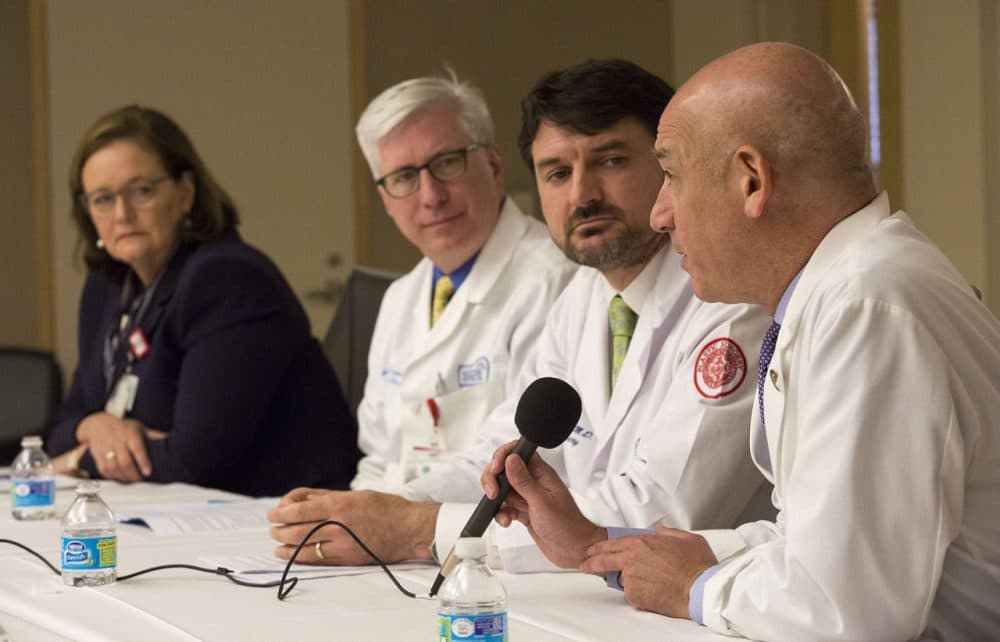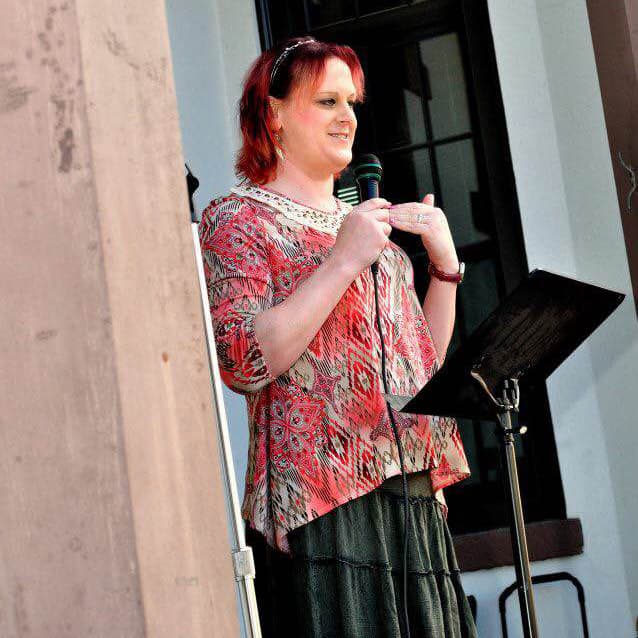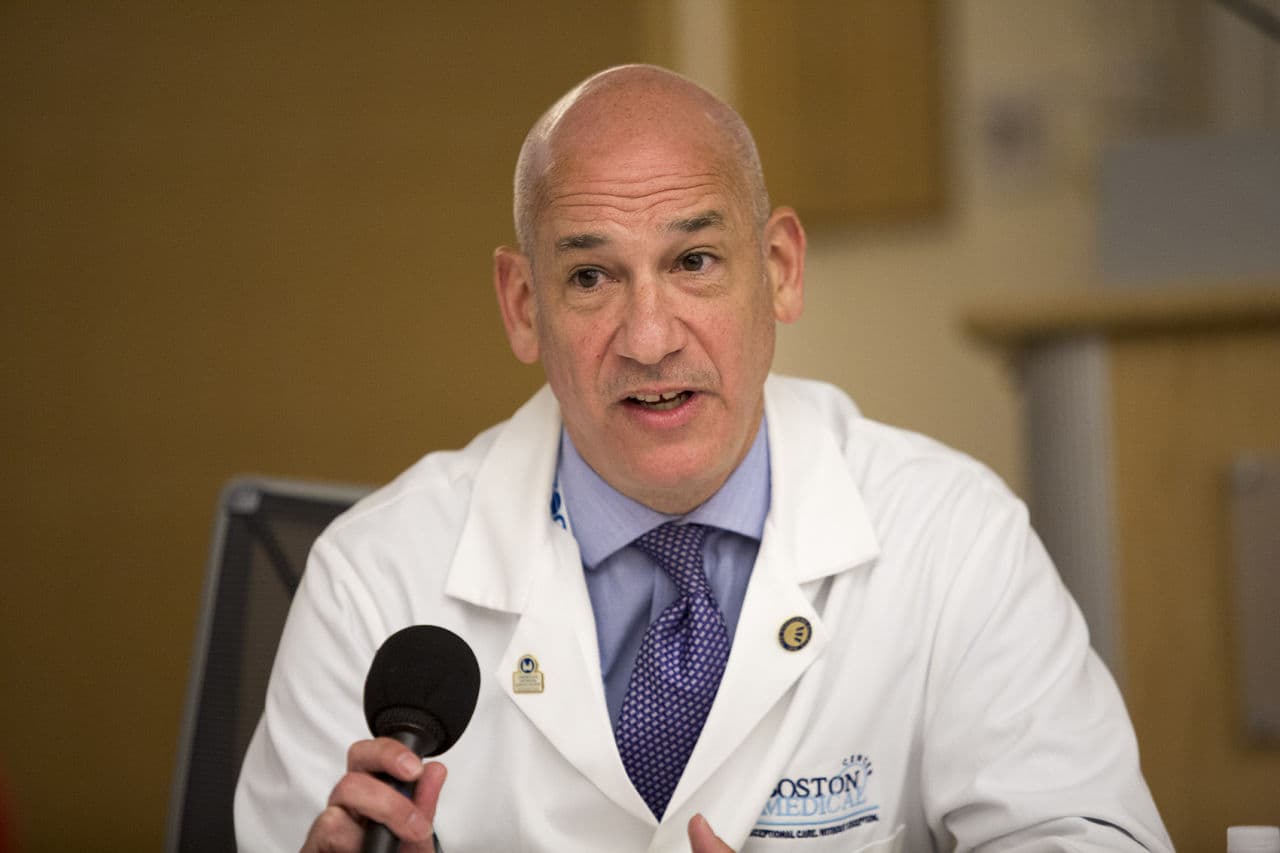Advertisement
Boston Medical Center Launches First Comprehensive Transgender Medical Center In Northeast
Resume
Boston Medical Center CEO Kate Walsh was in a meeting a few years ago when something about gender identity and health came up. She turned to Dr. Joshua Safer, who was treating many of the hospital's transgender patients.
"I said, 'So you really believe patients are born in the wrong bodies?' " Walsh recalls, looking at Safer across a conference room table as she tells the story. "You said, 'Yes,' and that’s how we started on this journey to help people live the lives they were meant to live."
The journey lead to the creation of the Center for Transgender Medicine and Surgery at BMC, the first such comprehensive service in the Northeast. It brings together services the hospital has been building out for several years: primary care, hormone therapy and mental health support, as well as chest and facial reconstruction procedures. Later this summer, as part of the comprehensive center, the hospital will begin genital surgery for men transitioning to women.
"This is very exciting for me to see us stepping up to do this," said Safer, who will direct the center. "If you look across North America, there are only a handful of surgeons doing this sort of thing."
That "thing" is sex reassignment surgery for transgender women. BMC will be the only hospital between Philadelphia and Montreal that performs the procedure. It will be covered by the state's Medicaid program and commercial insurers in Massachusetts.

"That's huge for me," said Nycii Vanderhoff, 43, a transgender woman who lives in western Massachusetts and began reviewing her options for surgery five years ago. "I didn't think I'd ever be able to get it."
Vanderhoff said she couldn't afford the procedure or the travel and recovery time in a city far from home. She put her name on the waiting list at BMC last year.
That list has now grown to 100 patients.
Initially, BMC plans to perform one or two genital surgeries a month and then increase to one a week.
"It involves orchiectomy, removing the testicles," said Dr. Jaromir Slama, a plastic surgeon who will work with a urologist during the typical five-hour procedure. "And we use the skin tube of the penis and some of the skin of the perineum to pretty much turn it outside in and that becomes the new vagina."
Glands from the penis and tissue from the scrotum are used to create fully functioning female genitalia for transgender women.
The goal is a "fully functional vagina," Slama said, which "means aesthetically functional and sexually functional as well. They should be able to experience orgasm."
BMC will not offer female to male genital surgery right now because there are too many complications with the current techniques, Slama said.
The center reflects a shift within mainstream medicine about how to treat transgender patients.
"Up until a decade or so ago, the view among many providers was that this was probably a mental disorder and the fear was that doing hormone therapy or doing surgery might be abetting a mental disorder and the correct intervention would be to counsel people," Safer said.
But Safer's research traces the increasing evidence that gender identity is rooted in biology, "which makes it so logical that an option for people in 2016 is to change the external appearance to meet that gender identity," he said.

That point of view may be gaining acceptance in mainstream medicine, but the debate is not settled.
Andrew Beckwith, president of the Massachusetts Family Institute, points out that the American Psychiatric Association still uses a mental health diagnosis to describe “people whose gender at birth is contrary to the one they identify with.”
"We believe that the proper treatment would be in the realm of mental health therapies and treatments, again not amputating otherwise healthy organs," Beckwith said. "I mean in what other scenario would you amputate a healthy organ to conform to a troubled mind."
"There is still a lot of opposition to the recognition of transgender medicine," said Jamison Green, president of the World Professional Association for Transgender Health.
With a growing demand for transgender care in Boston, "it's really important that a comprehensive center exists," Green said, "to show others that it is possible to do this, to train more professionals and to inspire the other facilities in the region."
At BMC, patients seeking male to female gender surgery must be at least 18 years old, have been on hormone therapy for a year and be approved by a panel of physicians.
For Vanderhoff, who says she doesn’t leave the house much to avoid harassment and threats, the surgery can’t happen fast enough.
"If my body, when I look in the mirror, is what I’m feeling on the inside, then I don’t have to worry about those issues as much," Vanderhoff said. "I can just be just a person."
